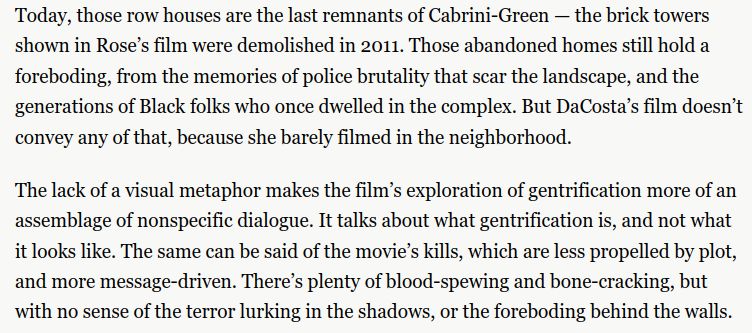-
CANDYMAN (1992) holds special importance in my mind because my best friend at primary school told me about it when I was way too young and it sounded like the scariest movie ever. I was too scared to watch it for years.
-
When I did watch it earlier this year, I was surprised at how socially conscious it is with themes of racial injustice, the ghettoisation of Black communities, and transgenerational trauma.
-
CANDYMAN (2021) has none of the subtlety of the original. It tells you in the text rather than the subtext that this is about gentrification and racial injustice. But it doesn't really approach these themes in a meaningful way.
-
The script is frustratingly poor at times going from character-who-provides-exposition to other character-who-provides-exposition. What CANDYMAN (1992) said through subtext, CANDYMAN (2021) tells you out loud and with a shadow puppet show.
-
There is an interesting thread about the figure of Candyman as an avenging figure for white violence against Black people (also present more subtly in the original) which is undermined in one completely unnecessary and disconnected scene where Candyman kills two Black teenagers.
-
And Robert Aiki Aubrey Lowe's score isn't a patch on Philip Glass's score for the original. Adding more choir to Glass' original music doesn't work.
-
Robert Daniels' (@812filmreviews) review for Polygon says all this better than I could. polygon.com/reviews/22641277/candyman-review-2021
